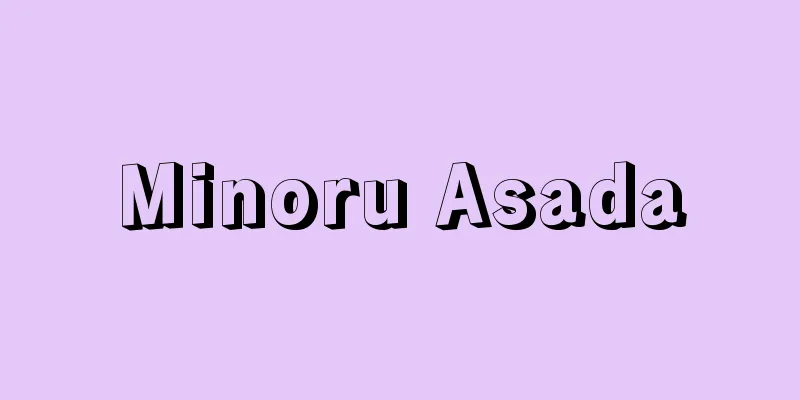Earth -

〘Noun〙 ("ji" is the Go-on pronunciation of "earth") [one] The earth as the foundation on which all things exist. Also, the place that such things occupy. chi. ① Earth. Ground. Tsuchi. chi. ※Utsubo (around 970-999) Fukiagejo: "As the cool breeze of Iyayuki played the koto, a sound echoed from above the clouds, and from below the earth, the wind and clouds moved, and the moon and stars rustled." ② Land within a certain plot. Land within a mansion or property. Also, the area around where one lives. That land. chi. ※Utsubo (around 970-999) Kurakaijo: "This storehouse is not even visible within this area. He said to his attendant, 'Is it within this area? See.'" ③ The land within one's influence. The range over which one's power extends. Territory. ※Sakehon Kokei Sansho (1787) "The title of the Umemoto game was called Atama Seven. I think there were territories on the front tower as well."④ In Sugoroku, the board is divided into left and right halves, each side divided by 12 lines, and each square is called a square. ※Ukiyo-zoshi Koshoku Sanmo (around 1695 ) 2 "As dusk falls, all I can tell is black and white. I can't think of anything else. I'm so focused on the Yamato main hand that I can't even think about the fifth or sixth squares. My head is bald, and I can't see the fifth or sixth squares."⑤ In Go, a void point that is counted as a point at the end of the game. An area that is surrounded by living stones and cannot be lived in even if the opponent enters it. In Japanese rules, it is customary not to count the territories within the seki, and taking stones (hama) are also converted into territories by subtracting the opponent's territory. The unit of measurement is the unit of measurement. Land. *Haiku poem, Uzuragoromo (1727-79), later: "I just made the ground, and when the seaweed was completely wrapped, I felt the itch of the mosquitoes' mouths, and was surprised to see ants on the cake tray." ⑥ Refers to the shells and cards lined up on the floor in games such as Kaiawase and Utagaruta. [Yongshu Fuzhi (1684)] [2] The original. The essential. The original form without embellishment or processing. ① Human skin. Skin. Hadae. *Ware kara (1896)〈Higuchi Ichiyo〉3: "The white chrysanthemums with even heavier makeup have become a skin that I can't stop wearing . " ② The original part of fabric, such as cloth or paper, that has not been woven or dyed with patterns. ※Utsubo (around 970-999) Rojojo: "The lower blinds are made of thin layers of incense and have small birds and butterflies sewn on them." ③ Woven fabric that has not been cut or processed. Also, the material of the fabric. ※Taiheiki (late 14th century) 7: "At the foot of the mountain, several thousand government troops, their helmet stars shining, their armor sleeves linked together, look like a ground embroidered with brocade." ④ Cardboard cut into shapes used for fans, umbrellas, eboshi hats, etc. Ground paper. ※Noh play: Eboshi Ori (around 1480): "We have specially taken the appropriate land from the capital, but in what order should we fold it?" ⑤ The real world, not fiction. Actual. Actual. ※Kakuhon Ukiyoburo (1809-13), 4: "Listen to this. This is what they call kyogen. This is the difference between ji and kyogen."⑥ In renga and haikai, a verse that has no special intention or design, but is a straightforward and safe verse that casually responds to the previous verse. ※Renga Kyokun (1582) , "When one is deeply concerned, it is called mon, when one does it easily, it is called ji."⑦ A natural disposition. One's nature. One's true nature. ※Mumyosho (around 1211), "Although many people have an air of having attained knowledge, no one will criticize or slander them after learning about the state of the poem."⑧ (For a businessman in that field) An amateur . In particular, prostitution by an amateur. Also, the act itself. A local person. *Miscellaneous Hai, Yanagi Taru-Roku (1771) "In the middle of the stay, the 'ji' is of no use" [3] Something that is the basis. Something that develops into other things. The part that is attached to other things and forms the basis. ① Something that is the foundation. The foundation. *Doujimon (1707) Vol. 1 "Loyalty and faithfulness are the two foundations of benevolence. Is it appropriate to have two of them?" ② The narrative part of a piece of writing or storytelling, excluding conversation and song. *The Tale of Genji, Ichiyo Sho (around 1495) Vol. 1 "In all of these tales, there are the author's words, the people's words, the words of the story, and the 'kusoshi' words. You should distinguish between them carefully." ③ In dance, the musical piece that accompanies the dance. Accompanying music or song. Also, the people who perform them, the instruments, etc. Jikata (region) . ※Miscellaneous Haiku, Yanagi Taru Shui (1801), Volume 3 "The Bon Dance is not sad, and even the nurse sings the ji tune."④ (Meaning basic musical phrase) In Japanese music, this is a musical phrase that is played over and over again. Such as Kinutaji and Sugomoriji . ※Okura Toramyomonsho (around 1658-61) "The ji tune is ta-tuku-ta-tuku-tan-taku. This ji tune is the original ji tune."⑤ In shamisen music, this refers to the shamisen with the basic pitch. A word that is the opposite of uwajoshi.⑥ Abbreviation of "jiutai (jiutai)." ※Toraakirahon Kyogen・Syonron (late Muromachi period - early modern period) "〈Shidai〉 Namu Myoho Renge Kyo, will people think that the character "kyau" in Renge Kyo should be kyau?〈While taking off the umbrella, he wipes off his umbrella〉"⑦ In Kabuki, this refers to the part of the dialogue drama in contrast to the Shosagoto. A realistic performance. ※Yakusha Rongo (1776) Ayamegusa "Shosagoto is the flower of Kyogen. Chi is the fruit of Kyogen."⑧ Abbreviation of "jigai (earth shell)". [4] The two sen when betting on a bow or large bow. In "Honcho Seji Danki," it is said that the bet is wrapped in red and white paper one sen at a time, and that this is called "ji," but the relationship between "ji" and "ji" is unclear. It is also unclear how it relates to the "ji" that means 2 bu 5 rin. ※Essays, Essays of the Time (1683) "Kakemono (abbreviated): Now, when it comes to coins, one sen is called "Gaki" (hungry ghost), two sen is called "Ji" (earth), and three sen is called "Yama" (mountain)."Chi [Earth]Tsushi [Earth]Source: The Selected Edition of the Japanese Language Dictionary About the Selected Edition of the Japanese Language Dictionary Information |
〘名〙 (「じ」は「地」の呉音)[一] 万物の存在する基盤としての大地。また、そのものの占める場所。ち。① 大地。地面。つち。ち。※宇津保(970‐999頃)吹上下「涼はいやゆきが琴を〈略〉ねたうつかうまつるに、雲の上より響き、地の下よりとよみ、風・雲動きて、月・星さわぐ」② ある区画内の土地。邸宅や所有地内の土地。また、住んでいるあたりの地域。その土地。ち。※宇津保(970‐999頃)蔵開上「この蔵はこの地のほどにもみえず。御供なる人に『この地の内か、見よ』とのたまふ」③ 自分の影響の及ぶ地。勢力の及ぶ範囲。なわばり。※洒落本・古契三娼(1787)「梅もとのていしゅはあたま七といっていろしさ。おもてやぐらにも地(ヂ)がござりやしたっけ」④ 双六(すごろく)で、盤面を左右に分け、双方各一二の罫(けい)によって区切った、そのおのおののますめ。※浮世草子・好色産毛(1695頃)二「二六時中の暮がたふ、白黒とのみ、何わきまゆるかたなふ候。大和本手の事ばかり、おもひきられぬ石づかい〈略〉あたまがはげて、五地(ぐヂ)も六地もみるものなく候」⑤ 囲碁で、終局の時点で得点に数えられる空点。生き石で囲み、相手がはいってきても、生きられない地域。日本のルールではセキの中の地は数えない習慣があり、取り石(ハマ)も相手側の地をマイナスすることによって地に換算される。計算の単位は目(もく)。地所。※俳諧・鶉衣(1727‐79)後「ただ地を造り、はま巻尽してぞ始て蚊の口のかゆさを覚え、菓子盆に蟻の付たるを驚く」⑥ 貝合わせ、歌がるたなどで、床に並べた貝や札をいう。〔雍州府志(1684)〕[二] 本来のもの。本質的なもの。粉飾や加工などをしないもとの形。① 人の皮膚。肌。はだえ。※われから(1896)〈樋口一葉〉三「更に濃い化粧の白ぎく、是れも今更やめられぬやうな肌(ヂ)になりぬ」② 布帛や紙などで、紋様などを織り出したり染め出したりしていない、本来の生地の部分。※宇津保(970‐999頃)楼上上「下簾も香のぢに薄物重ねて、小鳥・蝶などを縫ひたり」③ 裁断、または加工などをしていない、織ったままの布地。また、布地の材質。※太平記(14C後)七「麓には数千の官軍、冑星(かぶとのほし)を耀かし鎧の袖を連ねて、錦繍しける地の如し」④ 扇、傘、烏帽子などに用いる、その型に切った厚紙。地紙。※謡曲・烏帽子折(1480頃)「ことさら都より然るべき地を取り下して候ふ、さりながら何番に折り候ふべき」⑤ 虚構ではない現実の世界。実際。実地。※滑稽本・浮世風呂(1809‐13)四「コレ、聴きやれ。そこが狂言と云ものだは。地(ヂ)と狂言との差別(しゃべつ)はそこだはス」⑥ 連歌、俳諧で、一句に特別な意図や趣向はないが、前句に気軽く応じた、素直で無難な句。※連歌教訓(1582)「心深く案じぬるを紋といふ也、安々とやりたるを地といふ也」⑦ 生まれつきの性質。もちまえ。本性。本心。※無名抄(1211頃)「面々に証得したる気色どもは甚しけれど、ちに哥のさまを知りて譛め譏りする人はなし」⑧ (その道の商売人に対して) 素人(しろうと)。特に、素人で売春をおこなうこと。また、そのもの。地者。※雑俳・柳多留‐六(1771)「中宿で地は御無用といけんする」[三] 基本となるもの。他に発展するもととなるもの。他と付随しながら、その基本を構成する部分。① 基礎となるもの。根底。※童子問(1707)上「忠信為二行レ仁之地一。不二亦宜一乎」② 文章や語り物で、会話や歌を除いた叙述の部分。※源氏物語一葉抄(1495頃)一「すべて此物語に、作者詞、人々の心詞、双紙詞、又、草子の地あり。よく分別すべし」③ 舞踊で、舞いに伴う楽曲。伴奏の音楽や歌。また、それをする人、楽器など。地方(じかた)。※雑俳・柳多留拾遺(1801)巻三「盆おどり是悲なく乳母も地をうたひ」④ (基礎の楽句の意) 日本音楽で、同じ楽句を何回も繰り返して奏するもの。砧地(きぬたじ)、巣籠地(すごもりじ)など。※大蔵虎明聞書(1658‐61頃)「楽の地は、たらつくたらつくたんたらつく。此地が本地也」⑤ 三味線音楽で、基本の高さの三味線をいう。上調子(うわじょうし)に対立することば。⑥ 「じうたい(地謡)」の略。※虎明本狂言・宗論(室町末‐近世初)「〈次第〉南無妙法蓮華経、蓮華経のきゃうの字をきゃうせんと人や思ふらん〈ぢをとる間に、かさをぬぐ〉」⑦ 歌舞伎で、所作事に対し、せりふ劇の部分をいう。写実的な演技。※役者論語(1776)あやめぐさ「所作事は狂言の花なり。地は狂言の実なり」⑧ 「じがい(地貝)」の略。[四] 楊弓、大弓などで金銭をかける際の二銭のこと。「本朝世事談綺」に、賭金は一銭ずつ紅白の紙に包んで、それを「字」というとあるが「地」と「字」の関係ははっきりしない。また、二分五厘をいう「字」との関係もよくわからない。※随筆・一時随筆(1683)「かけものは〈略〉さて銭のときは、一銭を餓鬼、二銭を地といひ、三銭を山といひ」
ち【地】つし【地】出典 精選版 日本国語大辞典精選版 日本国語大辞典について 情報 |
Recommend
Pre-judicial disposition
When a crime or delinquency is committed, the trad...
Kajoli
1859‐1930 American historian of mathematics. Born ...
Germanic Mythology - Germanic Mythology
A mythology shared by all the Germanic peoples. H...
Araki Murahide
1640-1718 A Japanese mathematician from the early...
Sandstone
It is a type of sedimentary rock, a type of clast...
Comprehensive agricultural policy
The policy was made public in 1970, and aimed to m...
Large multi-rotating grassland - Ogatatajunsougen
...Because of its short growing season, it relies...
Mount Entsu
...A temple of the Rinzai sect of Buddhism, Daito...
Oguni-so
This manor was located in Iino and Taki counties i...
Nagara River
A river that flows south through the center of Gif...
《Disquisitiones arithmeticae》 (English notation) Disquisitionesarithmeticae
…Legendre summarized the results of number theory...
Kiyomoto-ryu
...Kiyomoto shamisen player. From the third gener...
Index librorum prohibitorum (English notation) Index librorum prohibitorum
…the term refers to the catalog of books that the...
Yorkshire [species] - Yorkshire
A breed of pig. Native to Yorkshire in the UK, the...
Robert Jemison Van de Graaff
1901‐67 American physicist. He studied engineering...









